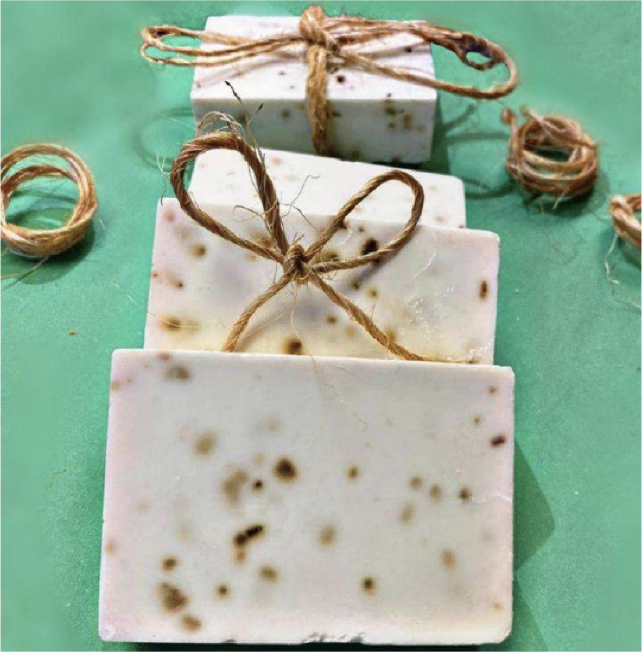Love is in the air with Valentine’s Day Soap Sale
February, 2023
Throughout the month of February, the PHS research program hosted a “Love Bug” Valentine’s Day-themed soap sale, with the proceeds directly funding the research program’s entry into this year’s Samsung “Solve for Tomorrow” competition, which they aim to win for the second year in a row.
The soaps are made by PHS students in the program who developed an innovative soap-making process in preparation for last year’s “Solve for Tomorrow” competition, where they received a $100,000 grand prize. By selling these soaps, Daniela Gonzalez, who is in charge of this year’s Research Program soap sale, hopes to fund the research program’s entry into this year’s Samsung design competition. “It’s a way of supporting the research program … by protecting and preserving the environment. Also, [you are] giving students opportunities to be creative,” said PHS Research Program Teacher Mark Eastburn. The larvae oil extracted from black soldier flies are a sustainable alternative to the environmentally-destructive palm oil that is commonly used in regular soaps. The black soldier flies are fed entirely with food waste from the cafeteria, making the soldier fly soaps more sustainable than many other soaps on the market. Using the oil, lavender, coconut, lemon, and other scented soaps were created and sold. A lot of research went into creating these interesting scents. “I think this is a pretty cool opportunity to learn some chemistry to protect the environment because we’re helping eliminate food waste [when] we use the black soldier flies. We [also] get to our courtyard where we can grow [plants] right here on campus and then extract oils from them,” Eastburn said. However, inventing these new soaps was not an easy feat. Through trial and error, the PHS Research Program has been able to create the best product they possibly can. “These are all fairly new recipes, but we want to make sure that we’re doing it right. We want feedback and we want people to try it and see what they think, because it’s a pretty cool opportunity to learn some chemistry to protect the environment,” Eastburn said.
Creating the soaps have also been popular among students who are participating in the research program. Luisa Buss ’25, a member of this year’s research team, believes that the research team offers a lot of opportunities for students who want to expand their interests.
“As a student, I am very grateful that the research program can keep going using these funds. Buying these soaps allows students like myself to be flexible in my studies and interests,” Buss said.
In addition to feeding the soldier flies leftover food, the PHS Research Program has also been able to find other ways to also reduce food waste through their experiments with soaps. Eastburn, who is in charge of the Food Produce Giveaway Program, has found ways to reduce food waste while helping people in need.
“We send hunger packages and deliver food for students who would need it. If there’s leftovers, I don’t want it to be wasted. So then I ended up giving it to other students and we all got to eat more fresh fruits and vegetables,” Eastburn said.
Although profit may be minimal, every penny that is earned is reinvested right back into the program.
“We’re not making a profit off of it, but we’re at least sustaining, and if we can get enough money, then we’ll get a better setup with the chicken coop now. Sending hunger packages is also helping us buy some more materials to make that chicken coop more secure,” Eastburn said.
As the PHS Research Program gets ready to enter the competition, Gonzalez and Eastburn hope that creating and selling these soaps will also inform students and their families about how to be more sustainable. Since these soaps are made from natural and high-quality ingredients, Gonzalez believes that they are not only good for the environment, but also for the users themselves.
“We can actually make an impact on the environment because we’re using ingredients that are sustainable, not like the palm oil and the other bad ingredients. We can use very good [and] natural ingredients that are [grown] at PHS,” Gonzalez said.